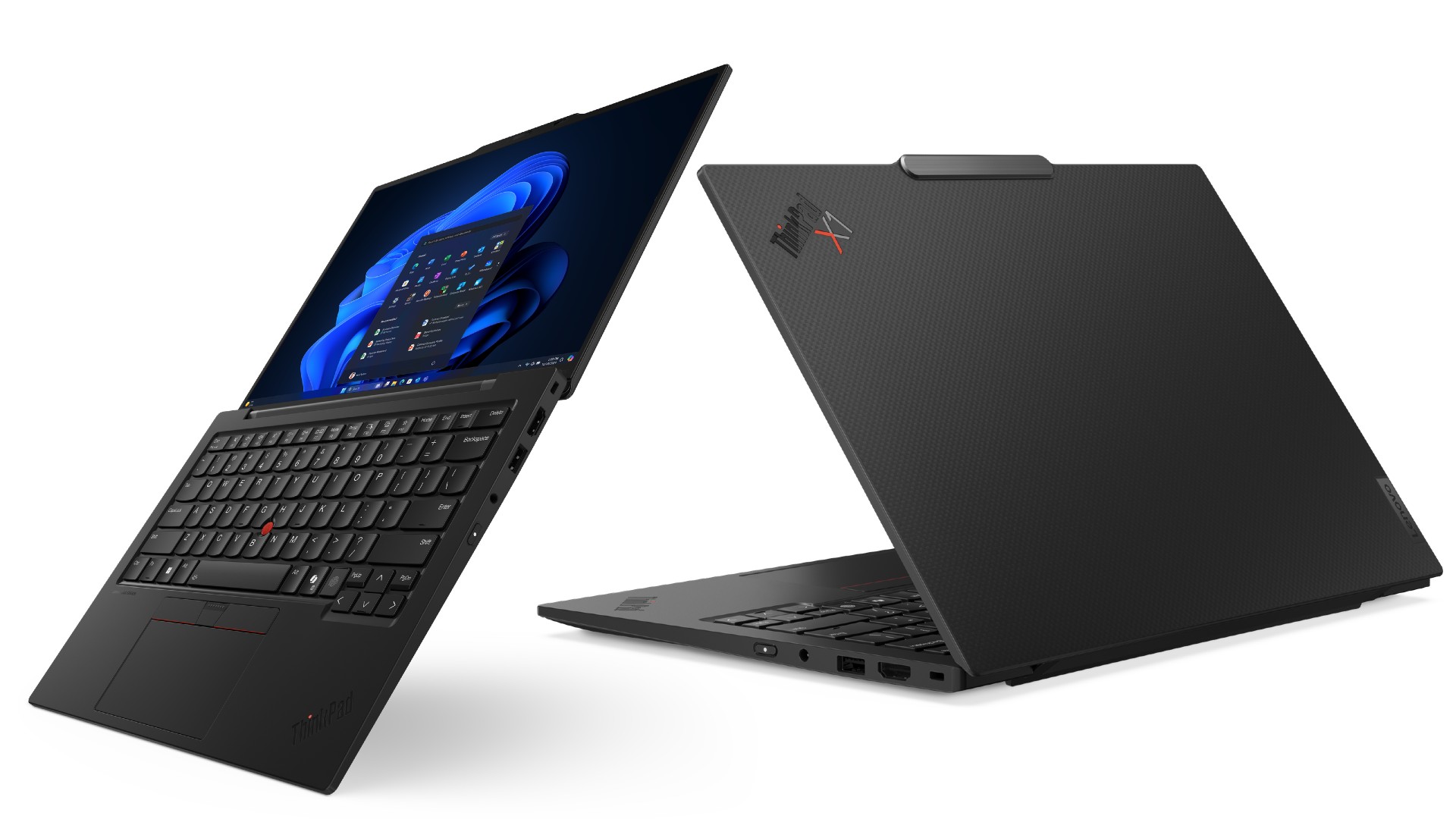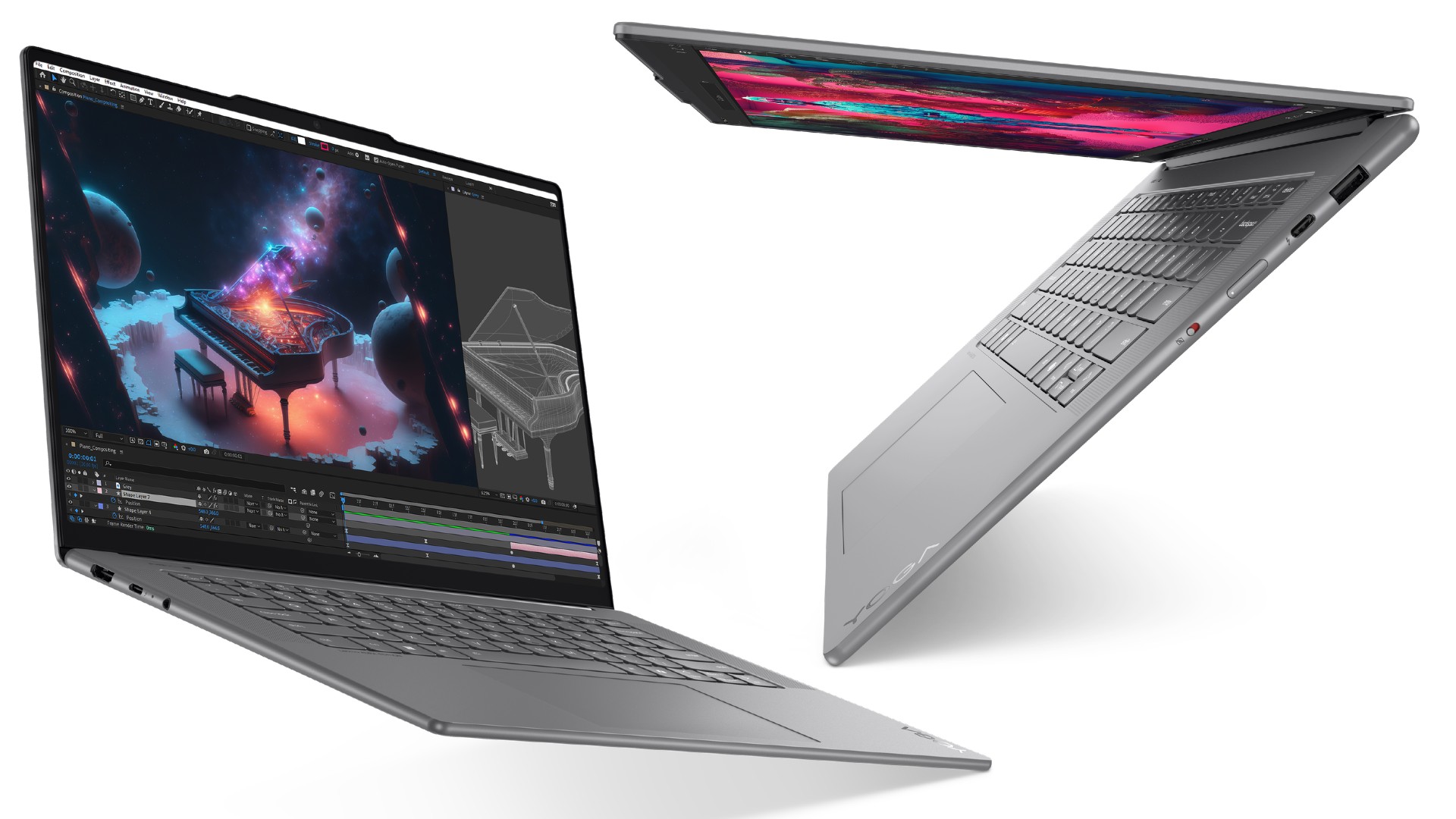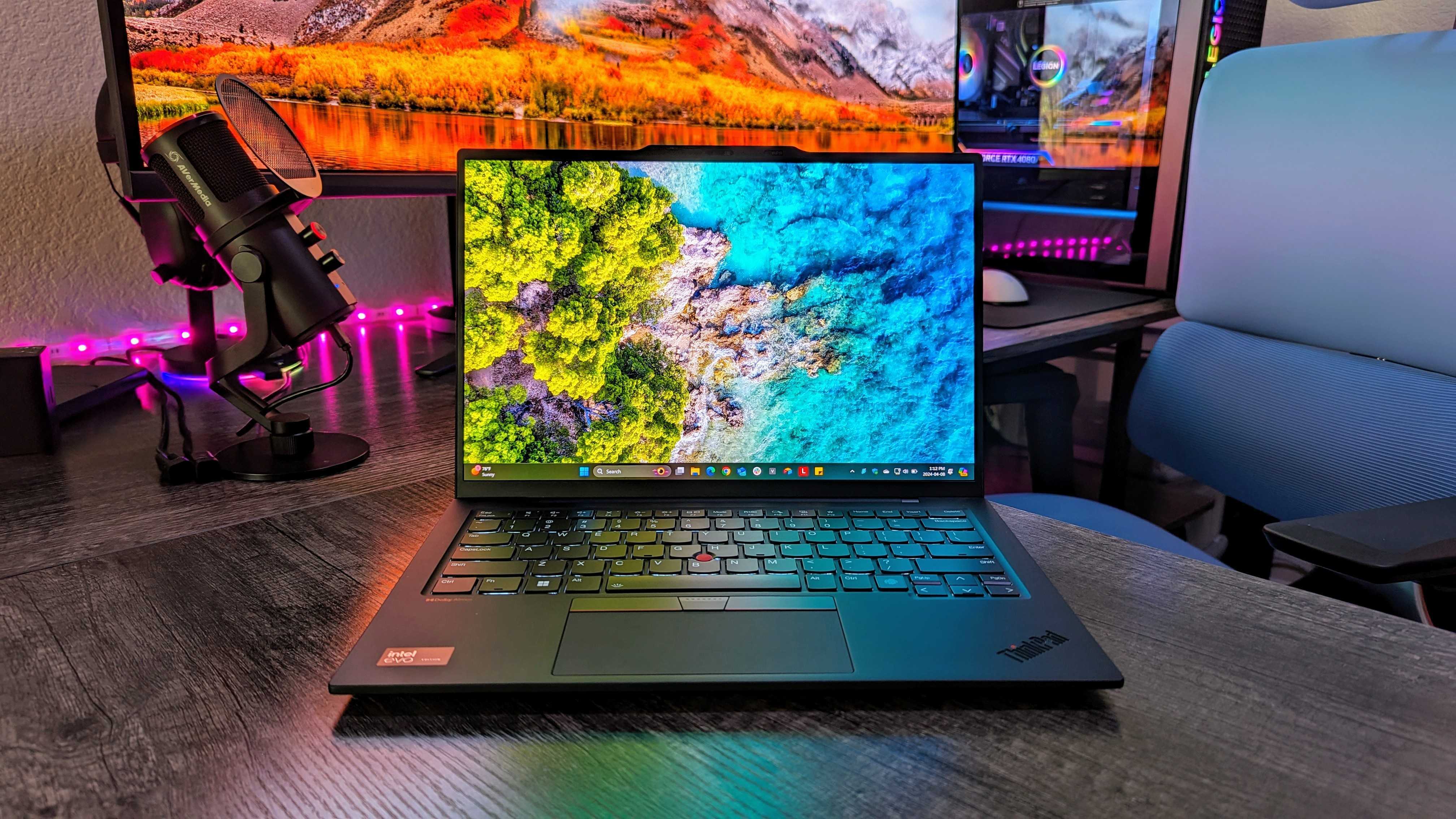What you need to know
- Windows laptops are continuing to become more competitive, now that Intel has rejoined the fray with its Series 2 lineup of Core Ultra chips.
- Lenovo has announced two “Aura Edition” laptops rocking these chips, which boast a series of smart features to help enhance productivity, battery life, and security.
- One is the Lenovo ThinkPad X1 Carbon (Gen 13), which somehow manages to be even lighter than the last generation while also being more powerful and more efficient.
- The other is the Lenovo Yoga Slim 7i (Gen 9), an upper mid-range Windows laptop aimed straight at the consumers who want to do it all.
It’s a great time to be a Windows laptop fan, as the market is getting exciting both in terms of hardware and software. Lenovo, as always, is making a big splash during IFA 2024, including showing off the very best of both the aforementioned categories with new “Aura Edition” laptops. Among other things, these laptops are defined by the brand-new Intel Core Ultra (Series 2) powering them, which makes big promises on performance and efficiency.
One is the latest Lenovo ThinkPad X1 Carbon, and it looks incredible. I loved last year’s version, and the new model somehow manages to be even lighter, thinner, more powerful, and longer lasting. I’ll believe it when I see it for myself. There’s also a brand-new Lenovo Yoga Slim 7i, which looks quite dashing and like it could be one of the better values in the sub-$1,500 range if it can truly deliver. Don’t just take my word for it, let’s get into what we know about these laptops right now.
🎒The best Back to School deals📝
A legendary enterprise laptop at its absolute best
I have to admit, this laptop is absurd. I reviewed the Lenovo ThinkPad X1 Carbon (Gen 12) and praised it for its impossibly low weight despite its very solid and durable design, but criticized how that may have contributed to the average performance and endurance.
Lenovo ThinkPad X1 Carbon (Gen 13) Aura Edition
• Price: From $1,999 at Lenovo
• Display: 14-inch OLED, 16:10 aspect ratio, 2.8K (2,880 x 1,800) resolution, 120Hz refresh rate, 400nits max brightness, VESA DisplayHDR True Black 500 & Dolby Vision HDR support, 100% DCI-P3 color gamut
• CPU: Intel Core Ultra 9 288V (8 cores, up to 5.1GHz)
• GPU: Intel Arc Xe2 140V
• NPU: Intel AI Boost (48 TOPS)
• RAM: Up to 32GB LPDDR5X @ 8,533MT/s
• Storage: Up to 2TB NVMe PCIe Gen 5 SSD
• Dimensions: 312.8 x 214.75 x 8.08-14.37mm (12.31 x 8.45 x 0.32-0.58in)
• Weight: 980g (2.16lbs)
Lenovo took those criticisms and somehow shoved the most powerful new Intel Core Ultra (Series 2) System-on-Chip (SoC) SKU with its ridiculously capable Neural Processing Unit (NPU) for AI tasks and significantly more powerful Intel Arc GPU inside a chassis that is both thinner (14.4 vs. 15mm) and lighter (980g vs. 1.09kg) than its predecessor with a lower-end, less efficient first-gen Core Ultra 7. Oh, and the battery is still the same size, and we also get much faster RAM and a ludicrously quick PCIe Gen 5 SSD.
I can’t fathom the ThinkPad X1 Carbon being lighter than it already was, and now Lenovo is promising considerably improved performance and battery life thanks to the major advancements made with Intel Core Ultra (Series 2). Despite being more compact, this laptop is actually more user-accessible, too, with a customer replaceable battery unit. That’s the good stuff.
We don’t seem to be losing anything, either; the same 14-inch, 120Hz OLED display I loved is here, as is the legendary Lenovo ThinkPad keyboard with its iconic TrackPoint dot (and an optional haptic touchpad, yay!). We still get dual USB Type-C Thunderbolt 4 ports, two USB Type-A 3.2 Gen 1 ports, an HDMI 2.1 port, and a 3.5mm audio jack, too. Now there’s Wi-Fi 7 and Bluetooth 5.4 support in addition to the optional 5G cellular connectivity, too.
This is still an enterprise-focused laptop, of course. Windows 11 Pro is on board in addition to Lenovo’s ThinkShield security suite, Windows Hello biometric authentication via both a fingerprint sensor and facial recognition, a dTPM 2.0 security chip, and a Nano Kensington lock slot. I frankly can’t wait to get my hands on this laptop, and I haven’t even mentioned the new “Aura Edition” features, which I’ll get to later. The Lenovo ThinkPad X1 Carbon (Gen 13) Aura Edition will be available in Nov. 2024 from $1,999, which is exactly as expensive as I knew it would be.
An awesome, AI-powered laptop for everyday people
Lenovo Yoga Slim 7i (Gen 9) Aura Edition
• Price: From $1,299 at Lenovo
• Display: 15.3-inch OLED or IPS LCD, 16:10 aspect ratio, 2.8K (2,880 x 1,800) resolution, 120Hz refresh rate, 500nits max brightness, 100% sRGB & DCI-P3 color gamuts, touch support (IPS LCD only)
• CPU: Intel Core Ultra 7 258V (8 cores, up to 4.7GHz)
• GPU: Intel Arc Xe2 140V
• NPU: Intel AI Boost (48 TOPS)
• RAM: Up to 32GB LPDDR5X @ 8,553MT/s
• Storage: Up to 2TB M.2 NVMe PCIe Gen 4.0 SSD
• Dimensions: 343.8 x 235.4 x ~13.9mm (13.54 x 9.27 x ~0.55in)
• Weight: 1.46 kg (3.2Ibs)
We also have a new addition to Lenovo’s premium mid-range Yoga 7 series. The Yoga Slim 7i (Gen 9) boasts the same curvy aluminum design language Lenovo has loved the last few years, but that’s not a complaint at all. This is a traditional, clamshell laptop with a larger 15.3-inch display, an uncommon middle ground between the 14 and 16-inch sizes we’re used to. You have your choice of OLED or IPS LCD, too, and it seems the biggest difference between the two (beside the actual display tech itself) is that the IPS panel supports touch input.
Under the hood you get the new Intel Core Ultra 7 258V, a capable SoC that’s a few spots down from the top of the new line but still far more advanced than last year’s Core Ultra chips. You get 8 very efficient cores, the new Intel Arc GPU that’s even capable of some casual gaming, and the new NPU that will ensure this laptop becomes a Copilot+ PC alongside all the other Intel Core Ultra (Series 2) and AMD Ryzen AI 300-series laptops later this year.
The port selection is decent but not exceptional for a laptop of this size, with two USB Type-C Thunderbolt 4 port, one USB Type-A 3.2 Gen 1 port, an HDMI 2.1 port, and a 3.5mm audio jack. Like the ThinkPad X1 Carbon above, Lenovo is also advertising its new “Aura Edition” features to help the new Yoga Slim 7i, but it and its massive 70Whr battery probably don’t need the help. The Lenovo Yoga Slim 7i (Gen 9) will be available later this month with a starting price of $1,299.
The beginning of Aura Edition laptops from Lenovo
If you asked me, I’d say all the hardware advancements made with the ThinkPad X1 Carbon steals the show for Lenovo’s IFA 2024, but if you asked Lenovo it’d probably say “our new Aura Edition features.” This is a new suite of software features reserved for specific Lenovo AI PCs, which right now includes exactly two powered by Intel Core Ultra (Series 2). The Lenovo Yoga Slim 7i was apparently designed in direct collaboration with Intel, so this makes sense.
For the most part, “Aura Edition” is just an evolution of what every manufacturer is desperately trying to do: develop AI features that help its laptops stand out from the crowd of other AI PCs. For Lenovo, that means a combination of discrete and active features that aim to make your laptop better even when you’re not engaging with the Aura Edition features.
The headlining feature is probably “Smart Modes,” which actually encapsulates multiple categories. Smart Modes are automatic, out-of-the-way features that can allow you to customize new focus modes to block distractions, improve your technology wellness with mindful reminders on eye fatigue and posture, and more helpful features like improving the quality of your video and audio conferencing and a shield mode that offers additional protections and security features, including an auto VPN.
Elsewhere, you have your standard “AI-tuned” power and performance profiles, a new feature that allows you to tap your phone to the side of your laptop to open an app that enables easy sharing of images, and other minor additions. It remains to be seen if “Aura Edition” will really be a reason to buy a laptop over another, but the laptops Lenovo is using to showcase the new AI features are at least convincing on their own.







